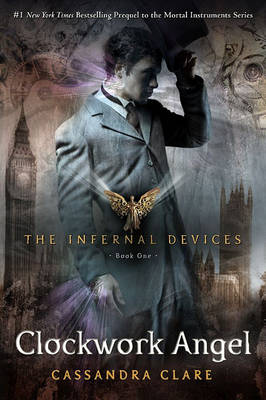Reviewed by Amber (The Literary Phoenix) on
But I didn’t.
Instead, Clare tells the story of Theresa Grey, a dreary mortal-who-isn’t-really, who spends a great deal of time worrying that people are not behaving like perfect ladies and gentlemen, worrying about her no-good brother, and pondering her origins. After a while, her daydream like comparisons to literature I am not intimately familiar with become dreary and it is easy to find oneself skimming forward a bit.
I wanted desperately to like this book, and I think I would have, if I had been in anybody’s mind but Tessa’s. Jessamine’s snobbery and secrets are equally alluring to William’s, and even the small stories that do get shared are interesting of their own accord. Maybe Tessa’s word be too, if it was unraveling a bit more rapidly! Clare tends to drag on a little, generally caught in a scene that – to me at least – feels mundane. Nonetheless, despite my issues with the flow of the writing and excitement of the protagonist, Clare paints such a vivid, peculiar world that one cannot help but to be intrigued. Even though I found this book a bit slow and boring, I absolutely would not toss aside Clare’s work altogether, because there were many aspects of the novel I enjoyed. In fact, when my (endless) reading list starts to dwindle down, I don’t doubt that I would pick up the sequel, or perhaps City of Bones. I simply became bored with this, but not so much that I couldn’t push through the more tedious points
Reading updates
- Started reading
- 5 February, 2012: Finished reading
- 5 February, 2012: Reviewed
